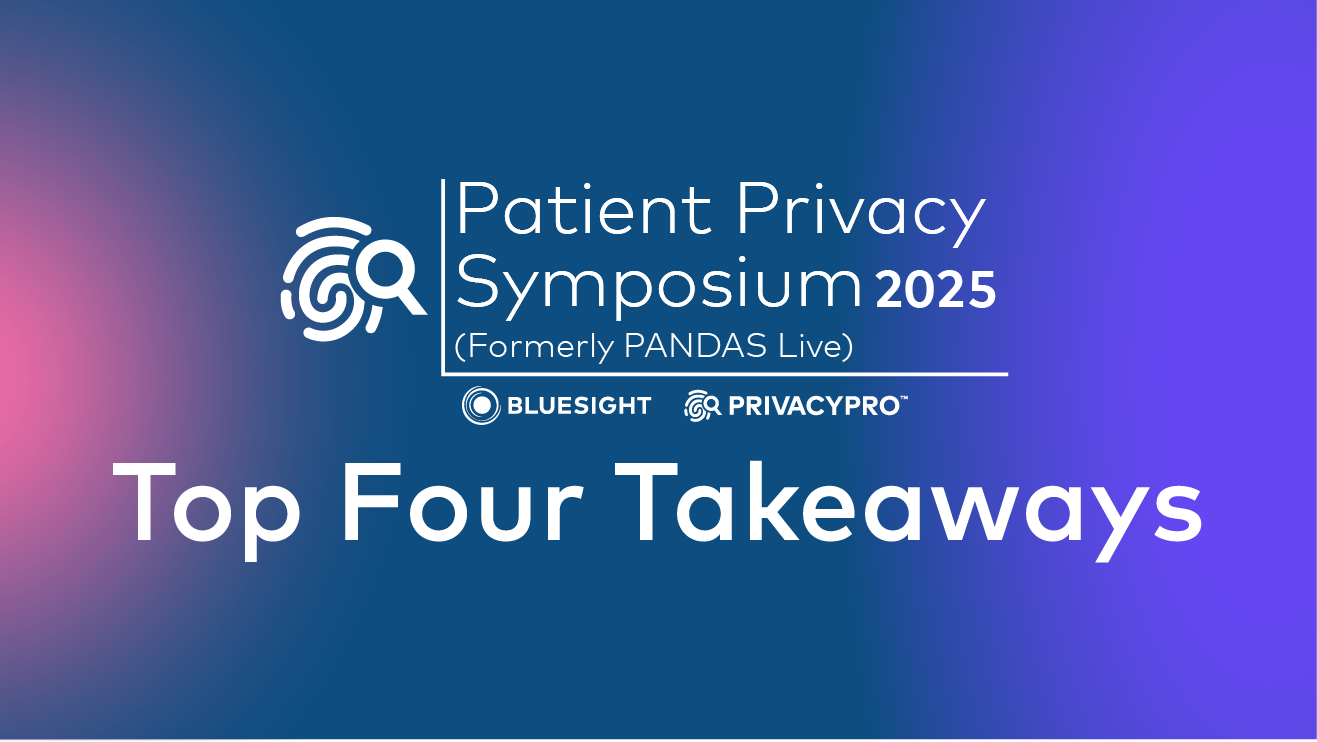Healthcare organizations face rising challenges in protecting patient privacy. According to the IBM Cost of a Breach Report, over 305 million patient records are breached annually, costing an average of $9.8 million per incident. At Bluesight’s recent Privacy Symposium, experts from across the industry shared strategies for addressing the most pressing issues in privacy monitoring. Their insights revealed four major trends shaping the future of privacy, compliance, and technology in healthcare.
- Increasing Use of Technology with AI and Machine Learning
AI and machine learning are increasingly seen as powerful allies to healthcare organizations to enhance operational efficiency, reinforce compliance, and protect patient data. Machine learning, in particular, allows data analytics capabilities to evolve through user feedback and expert-curated datasets, delivering highly accurate results. At the Symposium, speakers emphasized the growing importance of trustworthy AI, with some institutions now forming governance committees to assess these tools’ fairness, accuracy, and reliability.
- A Culture of Accountability and Education
Technology alone cannot fully address the challenges of compliance and data protection. Building a strong culture of privacy compliance is just as critical. Speakers stressed the importance of ongoing education, micro-learning initiatives, and seamlessly embedding privacy practices into everyday operations. Even in post-incident reviews, asking employees what they remember, what training they received, and what would have helped them better understand expectations can lead to more constructive outcomes. This approach helps build accountability and trust – shifting toward a culture of education rather than punishment when addressing privacy breaches.
- Front-Loaded Investigations
A top theme during the Privacy Symposium was the importance of front-loaded investigations, or gathering as much information as possible before meeting with the employee involved in a potential privacy violation. This preparation often includes data from electronic medical records (EMRs), outputs from privacy monitoring tools, footage from security cameras, and even publicly available information like social media activity. Armed with this context, investigators can focus the conversation on rapport-building and active listening, rather than interrogation – to ensure a fact-based conversation, rather than an interrogation.
- Pattern-Based Monitoring
With the volume of data in healthcare increasing rapidly, compliance teams are under pressure to do more with fewer resources. One promising shift is the move from incident-based monitoring to pattern-based detection. Serial snooping – repeated violations by the same individual over time – often slips through the cracks. But by shifting privacy monitoring efforts from incident-based to pattern-based, organizations can more effectively surface high-risk activity. Compliance teams that adopt this approach are already reporting faster resolutions and more accurate case management. Take the first step toward proactive privacy protection today. Explore PrivacyPro’s full suite of capabilities and check out the Multi-Incident Privacy Cases demo for detailed insights into proactively identifying privacy breaches.



